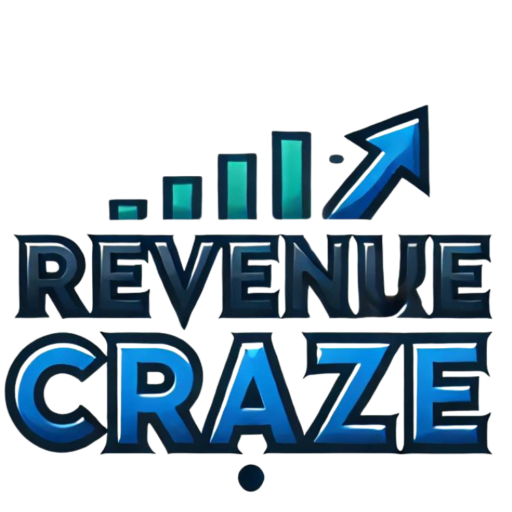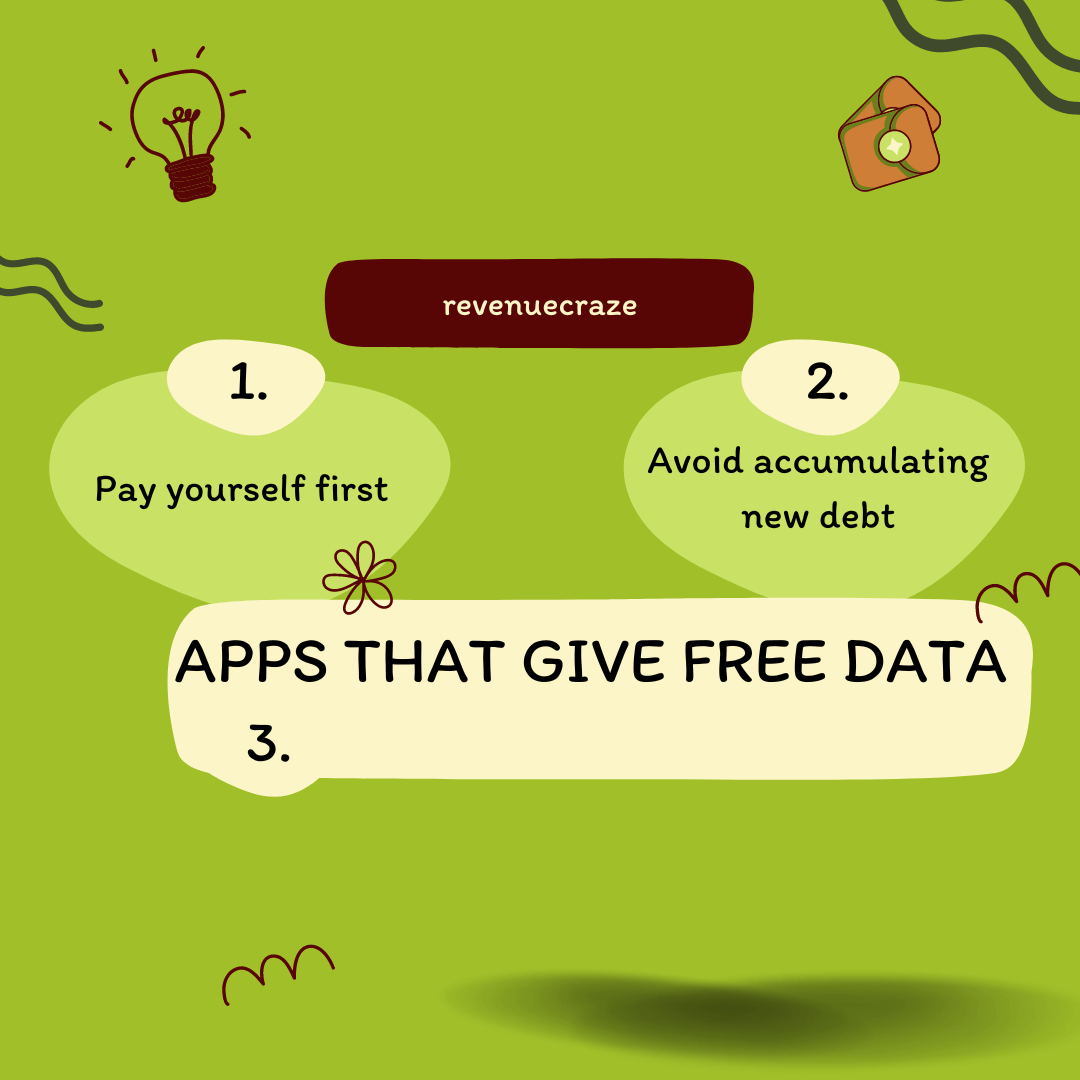9 Powerful Apps That Give Free Data: Top Picks for Saving Money
Last updated on September 14th, 2024 at 03:25 pm
looking for Apps That Give Free Data?
Don’t worry I got you covered.
Apps that offer free data have gained popularity as a way to save on mobile data costs.
Users can earn data rewards by watching videos, taking surveys, or downloading other apps.
This is especially beneficial for those with limited budgets or in areas with expensive data plans.
These apps provide instant rewards, allowing users to quickly earn and use data without waiting for traditional reward programs to accumulate.
Understanding Free Data Apps
Definition of Free Data
Free data apps offer users complimentary data in exchange for tasks like watching ads, downloading apps, or taking surveys. The amount of data earned varies by app and task.
How Free Data Apps Work
These apps partner with mobile network operators and advertisers. When users complete tasks, the app earns revenue, which it uses to buy data from the operator, then credits the user’s account with the earned data.
The Business Model Behind Free Data Apps
The business model involves revenue sharing between app developers, network operators, and advertisers. App developers earn from user tasks, operators earn from data purchases, and advertisers gain product exposure.
Data Reward Apps
Data reward apps are a popular way to earn free data. These apps reward users with data for completing certain tasks such as watching videos, downloading apps, or taking surveys. Some of the popular data reward apps include:
1. Databack
This app rewards users with data for using certain apps and completing offers. Users can redeem their earned data for mobile recharges or other rewards.
2. Mcent Browser
This browser rewards users with data for browsing the internet. Users can also earn more data by referring friends to the app.
3. Earn Talktime
This app rewards users with talk time and data for completing various tasks such as downloading apps, taking surveys, or referring friends.
4. MobileXpression
This app rewards users with data for keeping the app installed on their devices. Users can also earn additional data by completing surveys.
5. Panel App
This app rewards users with data for completing surveys and sharing their location data. Users can redeem their earned data for mobile recharges or other rewards.
6. Google Opinion Rewards
This app rewards users with Google Play credits for completing surveys. Users can use these credits to purchase apps, games, or other content on the Google Play Store.
7. mCent
This app rewards users with data for viewing ads. Users can also earn more data by referring friends to the app.
8. Slidejoy
This app rewards users with data for displaying ads on their lock screen. Users can redeem their earned data for mobile recharges or other rewards.
9. Data Recharge & Data Saver 4G
This app rewards users with data for viewing ads and completing offers. Users can redeem their earned data for mobile recharges or other rewards.
Overall, there are many popular free data apps available for users to choose from. Whether you prefer data reward apps, survey-based data apps, or advertising-supported apps, there are plenty of options to help you earn free data.
Read also: Make Money on Cash App in Minutes: Tips and Tricks
Benefits of Using Free Data Apps
Cost Savings
Free data apps help users save money by providing internet access without data charges, especially benefiting those with limited data plans.
Accessibility of Services
These apps increase access to online services like social media, marketplaces, and educational resources, which might otherwise be unaffordable due to data costs.
User Incentivization
Free data apps often offer rewards like free data or discounts, encouraging frequent and prolonged use, and benefiting both users and app providers.
Conclusion
Free data apps offer cost savings, greater access to services, and user incentives, making online access more affordable and widespread.
Limitations and Considerations
Data Limits and Restrictions
While there are apps that offer free data, it is important to note that these apps often come with data limits and restrictions.
Users may be limited to a certain amount of data per day, week, or month, and exceeding these limits may result in additional charges or a reduction in data speeds.
It is also important to consider the quality of the data offered by these apps.
Some apps may offer lower-quality data or limit access to certain websites or services.
Users should carefully review the terms and conditions of these apps to ensure that they understand the limitations and restrictions that come with the free data offer.
Privacy Concerns
Another important consideration when using apps that offer free data is privacy. Some apps may collect user data, including browsing history and location information, in exchange for the free data offer. Users should carefully review the privacy policies of these apps to ensure that their personal information is being protected.
Users should also be aware that some apps may share user data with third-party advertisers or other companies. It is important to understand how user data is being used and shared before agreeing to use an app that offers free data.
Network Compatibility
Finally, users should consider the compatibility of their device and network with the app that offers free data.
Some apps may only work with certain devices or networks, and users may experience connectivity issues or reduced data speeds if their device or network is not compatible.
Users should also consider the location and availability of Wi-Fi hotspots when using apps that offer free data. While these apps may provide a convenient way to access data on the go, users may be better served by seeking out free Wi-Fi hotspots in their area.
Setting Up Free Data Apps
Account Creation
To start using free data apps, users need to create an account. The account creation process varies depending on the app, but generally, users need to provide their personal information, such as their name, phone number, and email address. Some apps may require users to verify their phone number or email address before creating an account.
App Installation
After creating an account, users can install the app on their mobile devices. Most free data apps are available on both Android and iOS platforms and can be downloaded from the respective app stores. Once the app is installed, users need to log in using their account credentials to start using the app.
Data Redemption Process
To redeem free data, users complete tasks like watching videos, taking surveys, downloading apps, or referring friends.
These actions earn points that can be exchanged for data. However, not all free data apps are legitimate. Users should research, read terms and conditions, and be aware of potential hidden fees to use these apps safely and effectively.
Security and Privacy Tips
Protecting Personal Information
When using apps that offer free data, it is important to be cautious about the personal information you share. Some apps may ask for access to your contacts, location, or even your camera. Before granting access, consider if the app needs that information to function properly. If you are unsure, it is best to err on the side of caution and deny access.
Additionally, be wary of apps that ask for sensitive information such as your social security number or credit card details. Only provide this information if you trust the app and know that it uses secure encryption to protect your data.
Understanding App Permissions
When installing an app, it is important to review the permissions it is requesting. Some apps may ask for access to features or information that seem unnecessary or unrelated to the app’s function. In such cases, it is best to deny access or seek clarification from the app developer.
Be aware that some apps may continue to access your data even after you uninstall them. To prevent this, it is recommended to review the app permissions and revoke access to any sensitive information before uninstalling.
Safe Usage Practices
To further protect your privacy and security, it is important to follow safe usage practices when using apps that offer free data. This includes:
- Avoid using public Wi-Fi networks when accessing sensitive information
- Use strong, unique passwords for each app and account
- Keep your device’s operating system and apps up-to-date with the latest security patches
- Use anti-virus software to prevent malware and phishing attacks
Evaluating Free Data Offers
Assessing Data Value
When evaluating free data offers, it’s important to first assess the value of the data being offered. Some apps may offer a small amount of data that may not be worth the time and effort to use the app, while others may offer a substantial amount of data that can be very useful. To determine the value of the data, users should consider factors such as the amount of data offered, the speed of the data, and any restrictions on its use.
Comparing App Features
In addition to assessing the value of the data, users should also compare the features of different apps that offer free data. Some apps may offer additional features such as free texting or calling, while others may offer rewards programs or other incentives. Users should consider which features are most important to them and choose an app that offers those features.
Reading User Reviews
Finally, users should read user reviews of the app before downloading it. User reviews can provide valuable insight into the app’s performance, reliability, and ease of use. It’s important to read both positive and negative reviews to get a well-rounded understanding of the app.
Future of Free Data Apps
Technological Advancements
With advancements like 5G and IoT, free data apps will become more prevalent, offering faster and more reliable connections.
Potential Market Growth
The demand for free data apps will grow as more people connect to the internet, driven by social media, video streaming, e-commerce, and online banking.
Regulatory Impacts
The regulatory landscape is evolving, with some countries banning free data apps and concerns about net neutrality affecting their future.
Conclusion
Free data apps have a promising future with technological advances and increasing demand, but regulatory changes could impact their growth. Developers must stay updated on these changes.

